 W
WAlbertus Magnus, also known as Saint Albert the Great and Albert of Cologne, was a German Catholic Dominican friar and bishop. Later canonised as a Catholic saint, he was known during his lifetime as Doctor universalis and Doctor expertus and, late in his life, the sobriquet Magnus was appended to his name. Scholars such as James A. Weisheipl and Joachim R. Söder have referred to him as the greatest German philosopher and theologian of the Middle Ages. The Catholic Church distinguishes him as one of the 36 Doctors of the Church.
 W
WBruno of Cologne was the founder of the Carthusian Order, he personally founded the order's first two communities. He was a celebrated teacher at Reims, and a close advisor of his former pupil, Pope Urban II. His feast day is October 6.
 W
WBurchard of Worms was the bishop of the Imperial City of Worms, in the Holy Roman Empire. He was the author of a canon law collection of twenty books known as the Decretum, Decretum Burchardi, or Decretorum libri viginti.
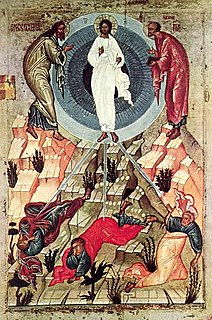 W
WEckhart von Hochheim, commonly known as Meister Eckhart or Eckehart, was a German theologian, philosopher and mystic, born near Gotha in the Landgraviate of Thuringia in the Holy Roman Empire.
 W
WGottfried von Hagenau was a medieval priest, physician, theologian and poet from Alsace. As his name suggests, he was probably born in Haguenau, before 1275.
 W
WHildegard of Bingen, also known as Saint Hildegard and the Sibyl of the Rhine, was a German Benedictine abbess, writer, composer, philosopher, Christian mystic, visionary, and polymath of the High Middle Ages. She is one of the best-known composers of sacred monophony, as well as the most-recorded in modern history. She has been considered by many in Europe to be the founder of scientific natural history in Germany.
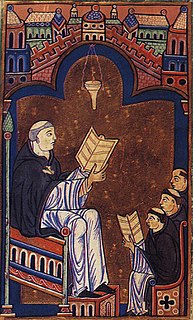 W
WHugh of Saint Victor, was a Saxon canon regular and a leading theologian and writer on mystical theology.
 W
WMagnus Hundt or Magnus Canis, also known as Parthenopolitanus, was a German philosopher, physician and theologian. Hundt coined the term anthropology, and he and Otto Casmann have been mentioned as founders of anthropology since they used the term in the 16th century.
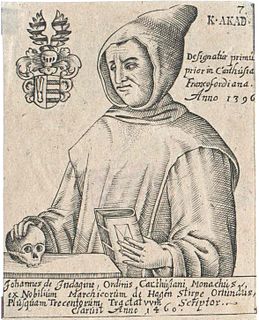 W
WJohannes de Indagine, also known as Johannes Indaginis, John of Hagen, otherwise Johannes Bremer von Hagen was a German Carthusian monk, a reforming theologian and theological author.
 W
WJohannes Knolleisen was a German theological professor.
 W
WMechthild of Magdeburg, a Beguine, was a Christian medieval mystic, whose book Das fließende Licht der Gottheit is a compendium of visions, prayers, dialogues and mystical accounts. She was the first mystic to write in German.
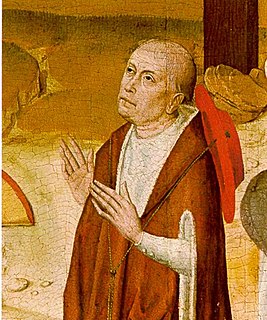 W
WNicholas of Cusa, also referred to as Nicholas of Kues and Nicolaus Cusanus, was a German philosopher, theologian, jurist, mathematician and astronomer. One of the first German proponents of Renaissance humanism, he made spiritual and political contributions in European history. A notable example of this is his mystical or spiritual writings on "learned ignorance," as well as his participation in power struggles between Rome and the German states of the Holy Roman Empire.
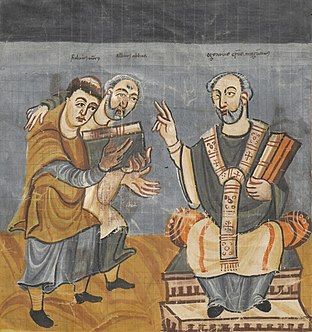 W
WRabanus Maurus Magnentius, also known as Hrabanus or Rhabanus, was a Frankish Benedictine monk, theologian, poet, encyclopedist and military writer who became archbishop of Mainz in East Francia. He was the author of the encyclopaedia De rerum naturis. He also wrote treatises on education and grammar and commentaries on the Bible. He was one of the most prominent teachers and writers of the Carolingian age, and was called "Praeceptor Germaniae," or "the teacher of Germany." In the most recent edition of the Roman Martyrology, his feast is given as 4 February and he is qualified as a Saint ('sanctus').
 W
WJohannes Tauler OP was a German mystic, a Roman Catholic priest and a theologian. A disciple of Meister Eckhart, he belonged to the Dominican order. Tauler was known as one of the most important Rhineland mystics. He promoted a certain neo-platonist dimension in the Dominican spirituality of his time.
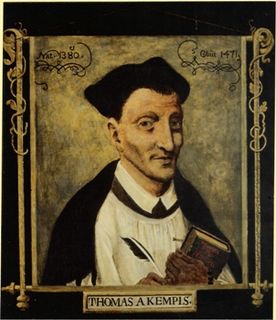 W
WThomas à Kempis was a German-Dutch canon regular of the late medieval period and the author of The Imitation of Christ, one of the most popular and best known Christian devotional books. His name means "Thomas of Kempen", Kempen being his home town.
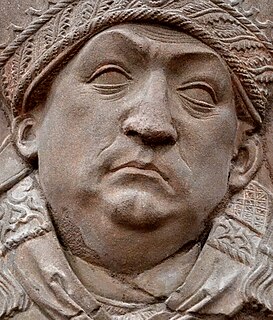 W
WJohannes Trithemius, born Johann Heidenberg, was a German Benedictine abbot and a polymath who was active in the German Renaissance as a lexicographer, chronicler, cryptographer, and occultist. He had considerable influence on the development of early modern and modern occultism. His students included Heinrich Cornelius Agrippa and Paracelsus.